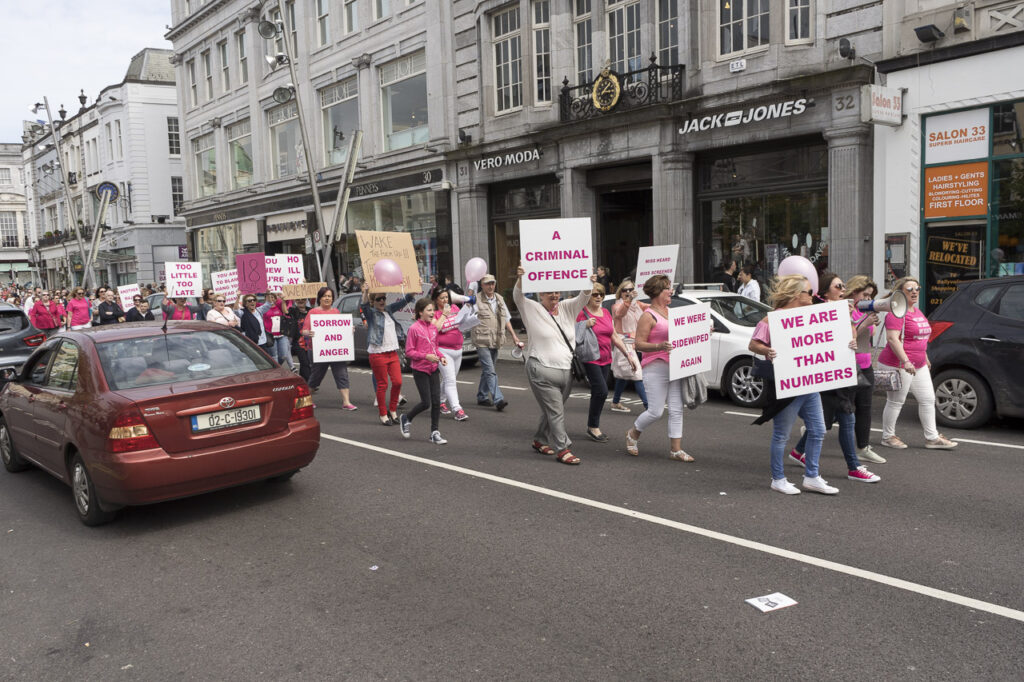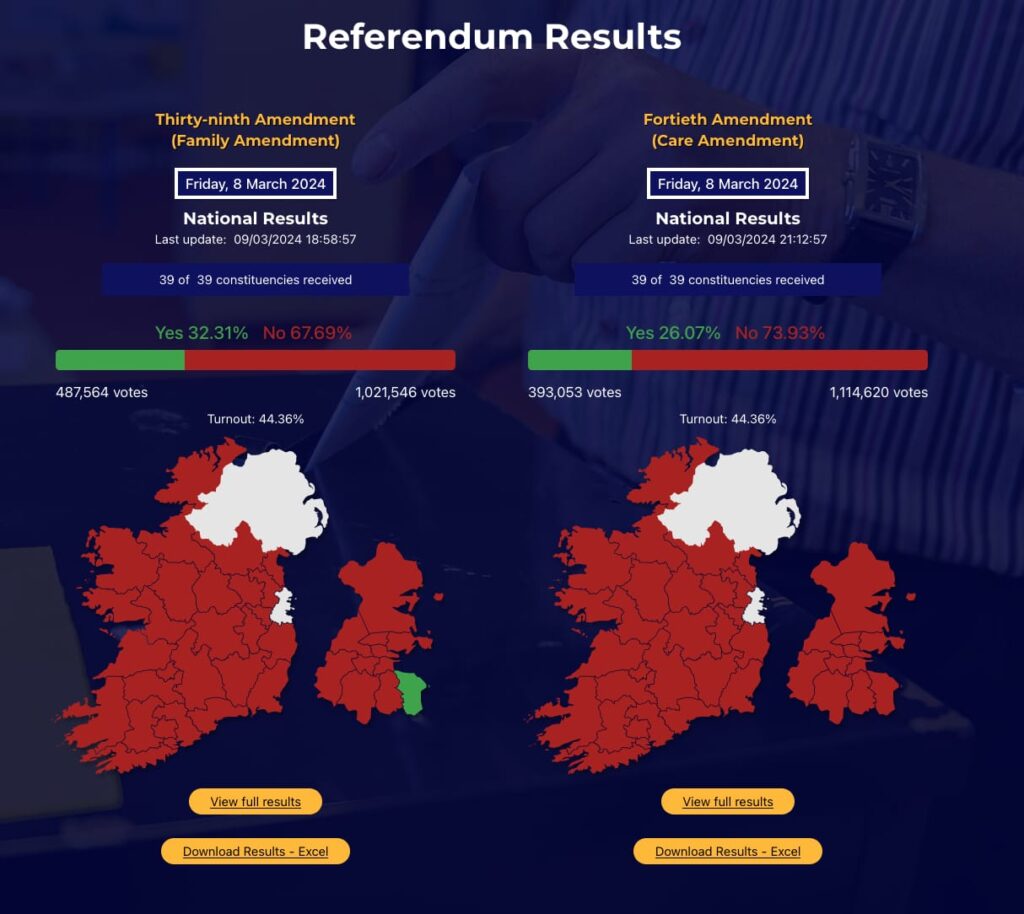Here in Ireland, we are holding a referendum on changing two sections of our constitution.
If I were to summarise the changes, I’d say:
- The family one is to recognise that marriage isn’t the only type of long-term relationship a couple or two people have.
- The carer one has been called an attempt to remove archaic and sexist language from the constitution when it says, “the State recognises that by her life within the home, woman gives to the State a support”. That text will be removed and the replacement text recognise that family members care for one another.
On this, International Women’s Day, many of the woman I know are voting NO to both changes.

Here are the main objections I see:
- what defines a durable relationship?
- what if someone is married and has a durable relationship elsewhere?
- “endeavour” vs “strive” to support. Which is stronger? Which word puts more pressure on the Gov to provide care?
I’m still not sure how I’ll vote. It will probably be no-no, but I may vote yet to the family one, as any ambiguity about the definition of “durable relationship” may be less trouble than the positives of having more relationships recognised. That’s up to the courts, however, which makes voting for this change so hard. Many of the people urging a no-no vote are not groups I would associate with, being conservative or right-wing. Meanwhile, all the Government parties and even Sinn Féin support a yes-yes vote. Sinn Féin say they’ll rerun the carer referendum if it’s rejected, and they’re elected into government:
Ms McDonald said that if the referendum was rejected, it would be her ambition to put the question to the people again “early in our term” if the party was elected to Government.
….
She said the party would be returning to the recommendation from the Citizen’s Assembly which would include care not just at home, but in wider society.The Irish Council for Civil Liberties (ICCL) has said it welcomes the referendum widening the definition of the family beyond just those based on marriage. But on the care referendum, it said the Government should have gone further.
“Based on our analysis, ICCL believes that the proposed text on ‘care’ will not provide meaningful legal protections to any person who gives or receives care.
Overall, we feel the Government should have gone further to implement the recommendation of the Citizen’s Assembly and the Oireachtas Committee. This would have represented a more legally impactful proposal.”
Sinn Féin would re-run care referendum if rejected on 8 March
There is an appeal by the mother of a disabled man who provides 24 hour care to him due to be heard in the Supreme Court in April. She wants to receive the carer’s allowance she deserves, but unfortunately for her, her partner has a job outside the home.
The appellant mother, who effectively provides 24-hour care to her son and has no means of her own, is disputing the Department of Social Protection’s decision that she is not entitled to the full-rate of the carer’s allowance because the weekly income of her partner, the man’s father, is €850.
If the constitution is changed, will it make it easier for the Government to ignore pleas for carer’s allowance?
Also, the Taoiseach, Leo Varadkar, says it’s not the State’s responsibility to look after those that need care. The joke is he said the quiet bit out loud but read on …
As I was writing this post, I discovered that Simon McGarr reported a couple of hours ago that The Ditch has uncovered advice from the attorney general to the Minister for Children, Equality, Disability, Integration and Youth about the referendums. Simon has some interesting commentary in his Mastodon thread. Here’s the bit from that doc about the Heneghan case:
The need for such clarity is particularly important when one considers this year’s Supreme Court judgment in Heneghan v Minister for Housing, Planning and Local Government. This is a notable example of the courts finding that they are entitled to consider the background and campaign leading up to a constitutional amendment when interpreting its purpose or scope. While that occurred in Heneghan in the context of apparent inconsistencies between different constitutional provisions, it is nevertheless a reason to exercise caution in communicating the purpose of the amendment in the course of the referendum campaign.
Irish Attorney General to Roderic O’Gorman TD
Leo saying that family should take care of family speaks volumes in that case. On the other hand, Simon admits that the future is uncertain.
Just in case you want more:
Free Legal Advice Centres are recommending a yes-no vote. An interesting piece explaining their stance that I found very convincing.
The yesyes.ie website urges a yes-yes vote but covers none of the grey areas of the changes.
As Anita says, most of the work done in the home will still be done by women, and that’s not going to change, no matter what happens today. My wife is meeting some friends this morning, but two have already had to cancel because they need to care for family members. Happy International Women’s Day.
I’m not a lawyer/solicitor. I just have a vote today. How will you vote? Did you vote already?
Edit: much later in the day:
Well done to all that voted, all 44.36% of you. Both changes were defeated by huge margins.
Family: 32.31% Yes, 67.69% No.
Care: 26.07% Yes, 73.93% No.
Now, let’s get back to not supporting the right-wing part of this country, ok?

